
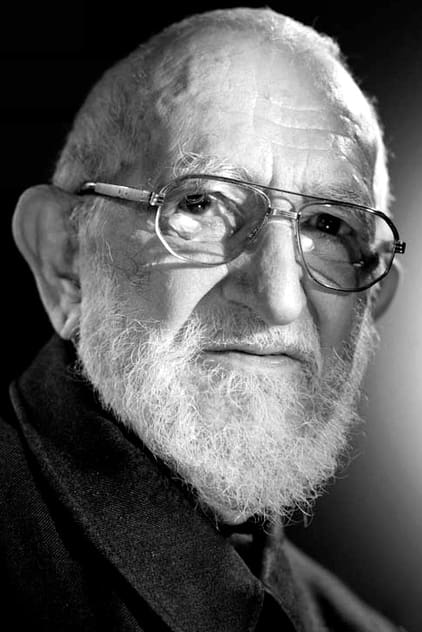
Abbé Pierre
Born: August 5, 1912
Died: January 22, 2007
in Lyon, Rhône, France
Died: January 22, 2007
in Lyon, Rhône, France
Abbé Pierre, OFM Cap, GOQ (born Henri Marie Joseph Grouès; 5 August 1912 – 22 January 2007) was a French Catholic priest, member of the Resistance during World War II, and deputy of the Popular Republican Movement (MRP).
In 1949, he founded the Emmaus movement, with the goal of helping poor and homeless people and refugees. He was one of the most popular figures in France but had his name removed from such polls after some time.
Grouès was born on 5 August 1912 in Lyon, France to a wealthy Catholic family of silk traders, the fifth of eight children. His aunt was the writer Héra Mirtel. He spent his childhood in Irigny, near Lyon. He was twelve when he met François Chabbey and went for the first time with his father to an Order circle, the brotherhood of the "Hospitaliers veilleurs" in which the mainly middle-class members would serve the poor by providing barber services.
Grouès became a member of the Scouts de France in which he was nicknamed "Meditative Beaver" (Castor méditatif). In 1928, aged 16, he made the decision to join a monastic order, but he had to wait until he was seventeen and a half to fulfill this ambition. In 1931 Grouès entered the Capuchin Order, the principal offshoot of the Franciscans, renouncing his inheritances and offering all his possessions to charities.
Known as frère Philippe (Brother Philippe), he entered the monastery of Crest in 1932, where he lived for seven years. He had to leave in 1939 after developing severe lung infections, which made the strict and hard monastic life difficult to cope with. He became chaplain to the hospital of La Mure (Isère), and then of an orphanage in the Côte-Saint-André (also in the Isère department). After being ordained a Roman Catholic priest on 24 August 1938, he became curate of Grenoble's cathedral in April 1939, only a few months before the invasion of Poland.
The Jesuit Fr. Henri de Lubac told him on the day of his priestly ordination: "ask the Holy Spirit to grant you the same anti-clericalism of the saints."
When World War II broke out in 1939, he was mobilised as a non-commissioned officer in the train transport corps. According to his official biography, he helped Jewish people to escape Nazi persecution following the July 1942 mass arrests in Paris, called the Rafle du Vel' d'Hiv, and another raid in the area of Grenoble in the non-occupied zone: "In July 1942, two fleeing Jews asked him for help. Having discovered the persecution taking place, he immediately went to learn how to make false passports. Starting in August 1942, he guided Jewish people to Switzerland".
His pseudonym dates from his work with the French Resistance during the Second World War, when he operated under several different names. Based in Grenoble, an important center of the Resistance, he helped Jews and politically persecuted escape to Switzerland. In 1942, he assisted Jacques de Gaulle (the brother of Charles de Gaulle) and his wife escape to Switzerland. ...
Source: Article "Abbé Pierre" from Wikipedia in English, licensed under CC-BY-SA 3.0.
In 1949, he founded the Emmaus movement, with the goal of helping poor and homeless people and refugees. He was one of the most popular figures in France but had his name removed from such polls after some time.
Grouès was born on 5 August 1912 in Lyon, France to a wealthy Catholic family of silk traders, the fifth of eight children. His aunt was the writer Héra Mirtel. He spent his childhood in Irigny, near Lyon. He was twelve when he met François Chabbey and went for the first time with his father to an Order circle, the brotherhood of the "Hospitaliers veilleurs" in which the mainly middle-class members would serve the poor by providing barber services.
Grouès became a member of the Scouts de France in which he was nicknamed "Meditative Beaver" (Castor méditatif). In 1928, aged 16, he made the decision to join a monastic order, but he had to wait until he was seventeen and a half to fulfill this ambition. In 1931 Grouès entered the Capuchin Order, the principal offshoot of the Franciscans, renouncing his inheritances and offering all his possessions to charities.
Known as frère Philippe (Brother Philippe), he entered the monastery of Crest in 1932, where he lived for seven years. He had to leave in 1939 after developing severe lung infections, which made the strict and hard monastic life difficult to cope with. He became chaplain to the hospital of La Mure (Isère), and then of an orphanage in the Côte-Saint-André (also in the Isère department). After being ordained a Roman Catholic priest on 24 August 1938, he became curate of Grenoble's cathedral in April 1939, only a few months before the invasion of Poland.
The Jesuit Fr. Henri de Lubac told him on the day of his priestly ordination: "ask the Holy Spirit to grant you the same anti-clericalism of the saints."
When World War II broke out in 1939, he was mobilised as a non-commissioned officer in the train transport corps. According to his official biography, he helped Jewish people to escape Nazi persecution following the July 1942 mass arrests in Paris, called the Rafle du Vel' d'Hiv, and another raid in the area of Grenoble in the non-occupied zone: "In July 1942, two fleeing Jews asked him for help. Having discovered the persecution taking place, he immediately went to learn how to make false passports. Starting in August 1942, he guided Jewish people to Switzerland".
His pseudonym dates from his work with the French Resistance during the Second World War, when he operated under several different names. Based in Grenoble, an important center of the Resistance, he helped Jews and politically persecuted escape to Switzerland. In 1942, he assisted Jacques de Gaulle (the brother of Charles de Gaulle) and his wife escape to Switzerland. ...
Source: Article "Abbé Pierre" from Wikipedia in English, licensed under CC-BY-SA 3.0.
Movies for Abbé Pierre...
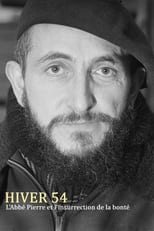
Title: Hiver 54 : L'Abbé Pierre et l'insurrection de la bonté
Character: lui-même - images d'archive
Released: January 20, 2024
Type: Movie

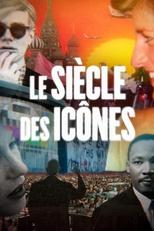
Title: Le Siècle des icônes
Character: Self (archive footage)
Released: December 27, 2022
Type: TV

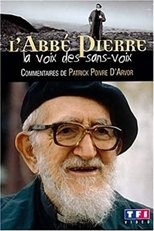
Title: L'Abbé Pierre - La voix des sans-voix
Character: Self (archive footage)
Released: January 4, 2008
Type: Movie
Henri Grouès, known as Abbé Pierre, had a life of commitments: youth among the Capuchins, resistant during the Second World War, then deputy for Meurthe-et-Moselle. The creation of Emmaus will mark the beginning of its fight against social inequalities, its appeal launched during the difficult winter of 54 will have a resounding echo in our society. This retrospective retraces the life of Abbé Pierre, archives and testimonies show it on all fronts of the fight against misery and injustice, for the support of the poorly housed, the excluded.

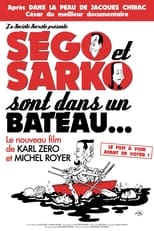
Title: Ségo et Sarko sont dans un bateau...
Character: Self (archive footage)
Released: April 4, 2007
Type: Movie

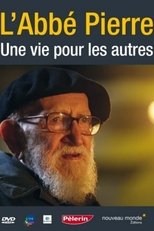
Title: Un abbé nommé Pierre, une vie pour les autres
Character: Self
Released: December 15, 2005
Type: Movie
A documentary directed by Claude Pinoteau.




Title: Against Oblivion
Character: Self
Released: December 11, 1991
Type: Movie
Contre l'Oubli (Against Oblivion) is a compilation of 30 French filmmakers, Alain Resnais and Jean Luc Godard among them, who use film to make a plea on behalf of a political prisoner. Jean Luc Godard and Anne Marie Mieville's film concerns the plight of Thomas Wanggai, West Papuan activist who has since died in prison. The short films were commissioned by Amnesty International.



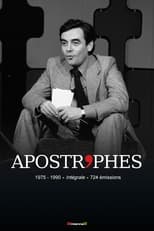
Title: Apostrophes
Character: Self
Released: January 10, 1975
Type: TV
Apostrophes was a live, weekly, literary, prime-time, talk show on French television created and hosted by Bernard Pivot. It ran for fifteen years (724 episodes) from January 10, 1975, to June 22, 1990, and was one of the most watched shows on French television (around 6 million regular viewers). It was broadcast on Friday nights on the channel France 2 (which was called "Antenne 2" from 1975 to 1992). The hourlong show was devoted to books, authors and literature. The format varied between one-on-one interviews with a single author and open discussions between four or five authors.

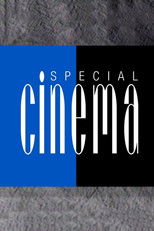


Title: The Ragpickers of Emmaus
Released: February 23, 1955
Type: Movie
The Emmaüs community opened and functioned thanks to the generous impetus of Abbé Pierre Groues, bringing together a cross-section of the underprivileged: unemployed truck drivers, former paratroopers, young people leaving prison, etc., and underprivileged families. The "ragpickers" manage to make a bit of money by practicing the art of "chine", while the abbé tries his hand at winning radio games. The accident and death of one of them will unite the Emmaus companions even more.
